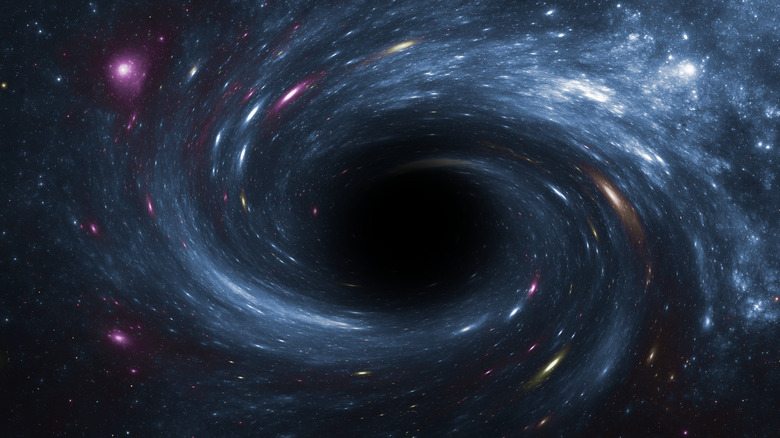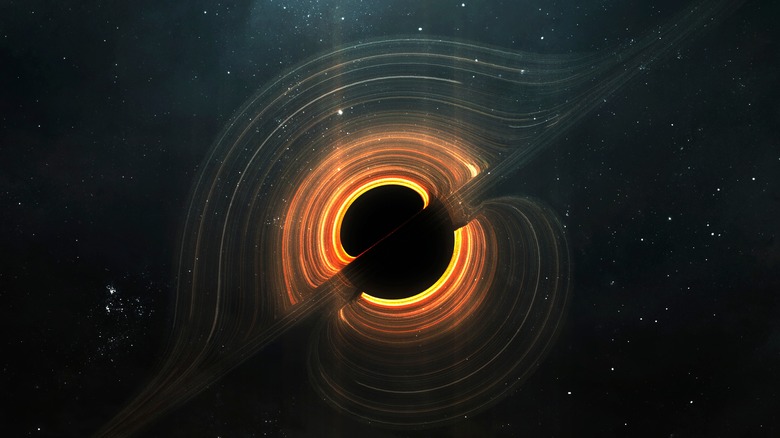Scientists Find Evidence That Black Holes Are The Cause Of Dark Energy
The concept of dark energy has perplexed scientists for decades. Research suggests that nearly 70% of the universe is dark energy, the rest includes dark matter, and less than 5% of the universe is made up of matter that we know. But so far, there has been no direct observation of this hidden dark energy, neither has its source even been triangulated. Remarkable new research claims that black holes are the source of the astronomical enigma that is dark energy.
The finding — which comes courtesy of experts from the University of Hawai'i and Imperial College London, among others — comes from the analysis of black hole evolution data spanning billions of years into their cosmological history. The team focused on a special kind of these cosmic entities called giant elliptical galaxies, which are no longer engaged in star formation. At such a state, there is little cosmic buffet left for black holes to eat and grow, which should ideally cap the growth of these black holes.
However, comparisons with distant young galaxies showed that these local elliptical galaxies grew by anywhere between seven to 20 times beyond what was predicted using theoretical models. The team behind the research claims this is "the first observational evidence that black holes actually contain vacuum energy and that they are 'coupled' to the expansion of the Universe." Notably, the research only serves to solve a long-standing mystery as to how the universe continues its expansion.
Fueling the expansion of our universe
So far, experts have proposed varied theories behind dark energy. The first one says that dark energy is an integral property of space itself, adding it is weaved right into the fabric of space-time as we know it. The other version borrows from Einstein's gravity theory and claims that empty space can carry its own energy, but only after factoring in a concept called the cosmological constant. There are also quantum explanations, and even one that says dark energy actually acts like a fluid filling space, but one that affects the expansion of the universe in mysterious ways.
One of the more extreme possibilities was that Einstein's gravity theories missed the mark. However, the latest research disproves that plausibility. "Black holes in Einstein's theory of gravity are the dark energy," says former Imperial College London student Duncan Farrah, one of the authors of the two research papers published in The Astrophysical Journal and The Astrophysical Journal Letters. "Stellar remnant black holes are the astrophysical origin of dark energy," concludes one of the research papers.
Ever since scientists discovered that the universe is expanding, experts have been baffled by the unknown process that fuels it. It was thought that since the gravitational force between cosmic bodies holds things together, it should ideally resist the expansion of the universe instead of causing an expansion. The latest research notes that black holes are fundamentally tied to the expansion of the universe, a phenomenon that is dubbed "cosmological coupling."

